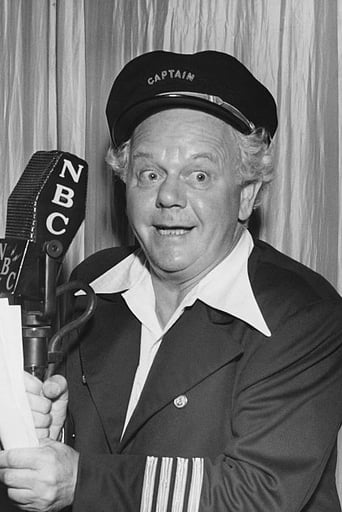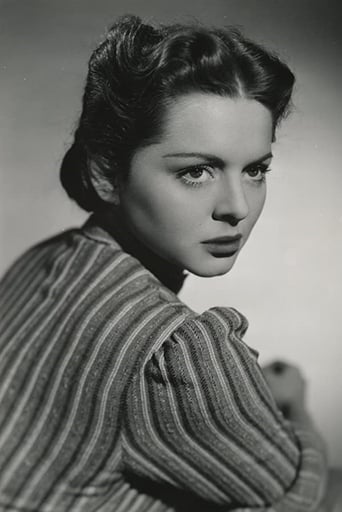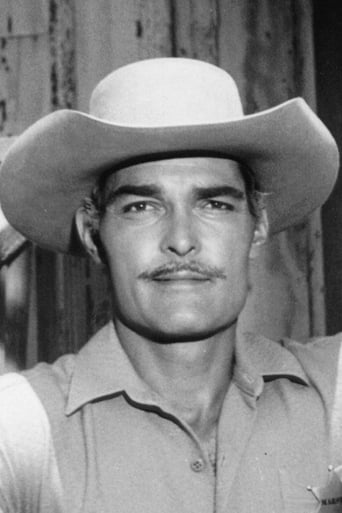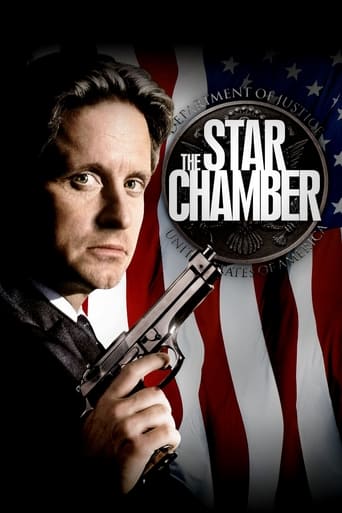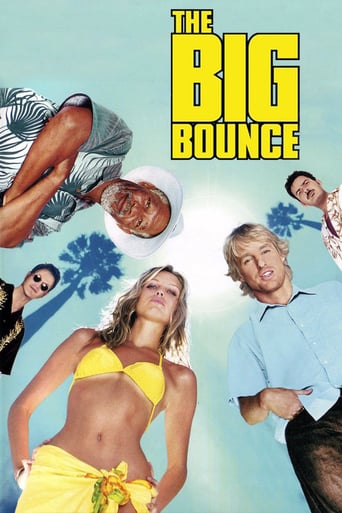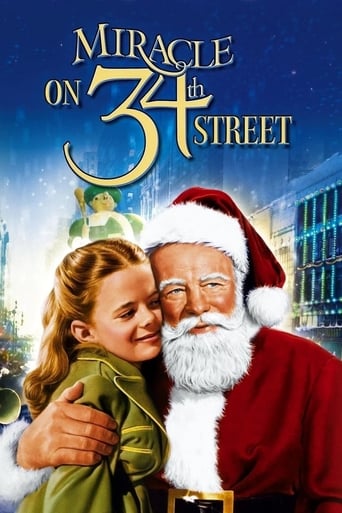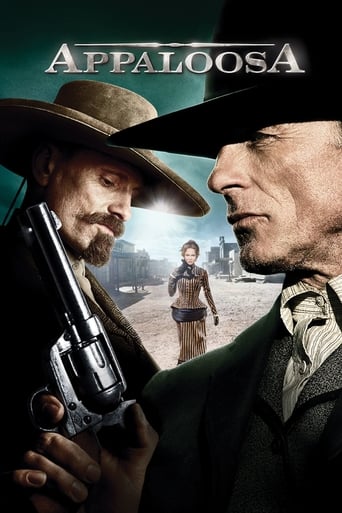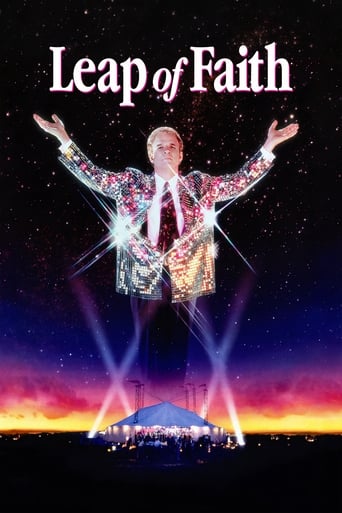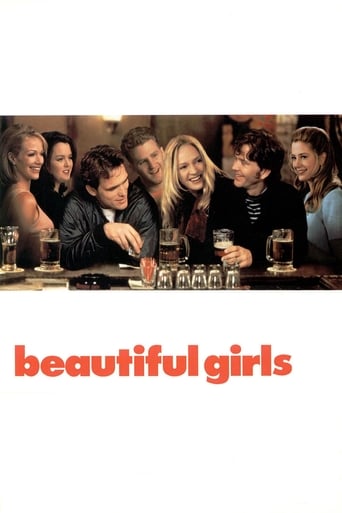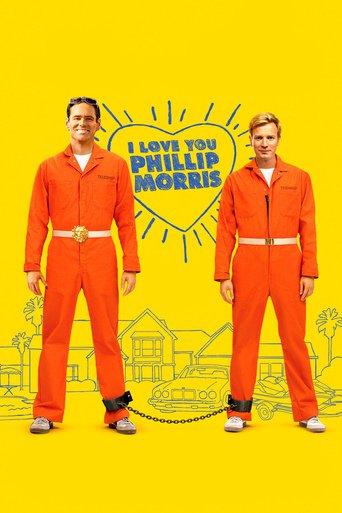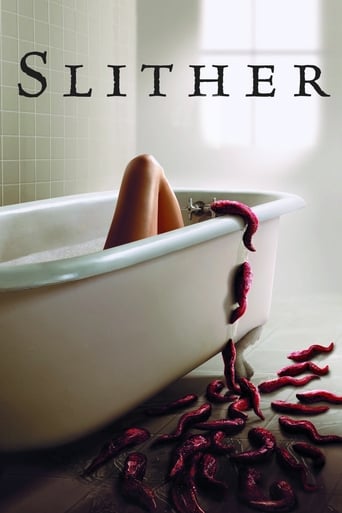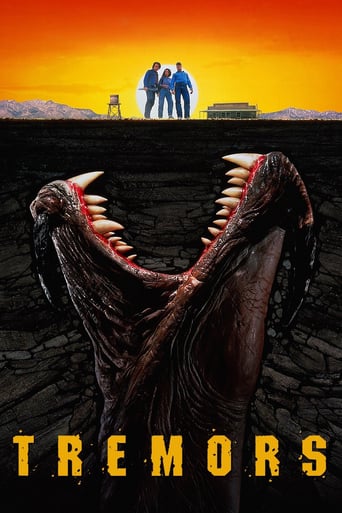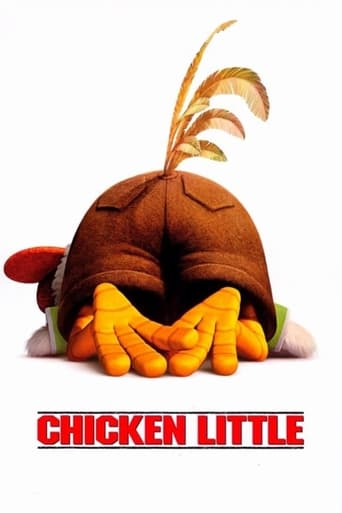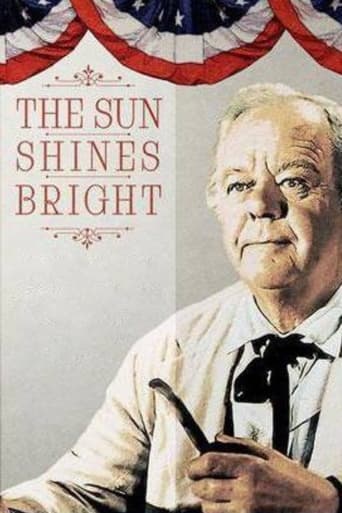
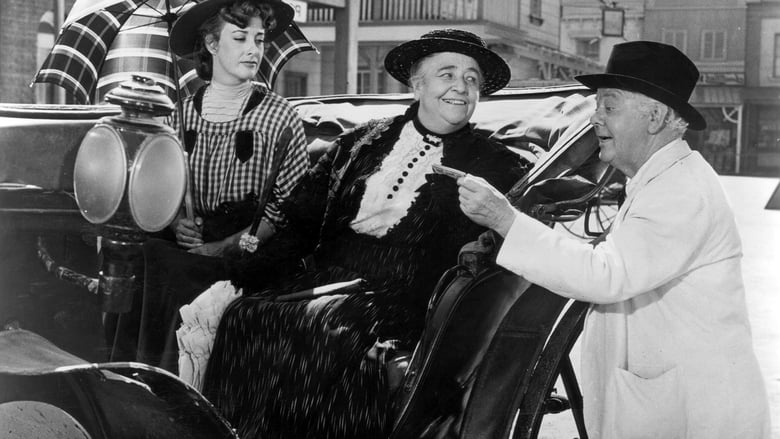
The Sun Shines Bright (1953)
With the election approaching, a judge in a Southern town at the turn of the 20th century is involved variously in revealing the real identity of a young woman, reliving his Civil War memories, and preventing the lynching of an African youth.
Watch Trailer
Cast


Similar titles
Reviews
That is the theme of this sentimental comedy/drama remake of John Ford's "Judge Priest" which he also directed, and which he also asked black comical character actor Stepin Fetchit to repeat his role of the slow-witted servant. Not much has changed in almost two decades, and in the case of Hollywood's treatment of black characters, this is on the same scale as "Gone With the Wind". Cheerful mammys, singing darkies, almost missing the days of slavery, and in the case of Stepin Fetchit, he actually sits in on one of the meetings of the aging confederate soldiers as their servant, not their equal. At the heart and soul of this flawed but entertaining film is Charles Winninger, taking on the role which Will Rogers had played years before. He's running for re-election and finds opposition for the first time in years against a ruthless opponent.This is a small-minded community with Jane Darwell as the town matriarch who greets each of the young ladies coming into a town dance with the same fake compliment of her being the bell of the ball. When an outcast from years before returns, the past of her illegitimate daughter (Arlene Judge) is threatened to be revealed, and this leads to Judge Priest standing up for decency over human judgments and the moral pointing of the finger. Yet, there are tons of stereotypical southern characters tossed into the mixture, especially the presence of two moonshine making hicks (one played by a young Slim Pickens), a typical "Negro spiritual", and a ton of dialog rolling off the tongues of holier than thou sweeter yet as dangerous as honey rolling off a hive filled with swarming bees. The return to the screen after a 20 year absence of Dorothy Jordan (as Judge's unfortunate dying mother) is of particular interest as even with little dialog, she breaks your heart just with her sadly pathetic presence.In spite of the bell of falsehoods this film rings, I can't dismiss it as a film I didn't enjoy, because it showed that even in one small way through Winninger's character, people were changing somewhat, even if the whole racist stereotypes and praising of a way of life that just could not continue to be grated somewhat on my nerves.
"Racist? Me? My best friends are black; Woody Strode and my servant who's lived with me for thirty years. I've even made a picture exalting the blacks! I'm not a racist! I consider the blacks as completely American!" - John FordJohn Ford's "The Sun Shines Bright" stars Charles Winniger as William Priest, a kind, elderly judge operating out of old Kentucky. Structured as a series of vignettes, the film watches as Priest finds work for lazy black men, sympathises with prostitutes, defends wrongly accused African Americans, challenges racist lynch mobs and forges bonds between Confederate and Unionist types, the American North and South holding hands under the magnificent spectacle of the Star-Spangled Banner.In other words, it's another John Ford flick about "what it means to be American". What's interesting about "The Sun Shines Bright", though, is the way it manages to be sympathetic to the plights of the downtrodden (prostitutes, women, African Americans etc), whilst also being totally conservative, racist and reactionary. In this regard, Ford's film is filled with racial stereotypes (Stepin Fetchit, cast a dimwitted man-child), is incredibly paternalistic, pretends to decry outlaw justice whilst celebrating the vigilante killing of bad guys, panders to Confederates and exalts the moral and ethical superiority of the Law (which in most Ford flicks, equates with the bowing down to military/patriarchal authority). "The Sun Shines Bright" was based on a series of "Judge Priest" stories by Irvin S. Cobb. It's also a loose remake of Ford's 1933 film, "Judge Priest". That film opened with text which exalted the "tolerance of the late 1800s" and the "wisdom of an almost vanished generation". This bogus sentimentality, and ahistoricism, is replicated in "The Sun Shines Bright", both films nostalgically pining for a Lost Cause mode of southern identity, but doing so in the guise of a statement against prejudice and intolerance. This is not surprising. Most films "about" or "against" racism ("Colour Purple", "Monster's Ball", "Sayonara", "The Blind Side" etc) are thoroughly racist. But "The Sun Shines Bright" goes further. It manages to outright reassert the patriarchal slave order of the Old South, and endorse its standard iconography of racial subjugation, whilst doing so via a mechanism of reform.Most Ford flicks take place within a burgeoning civilisation on the edge of a beautiful wilderness. Ford then typically gives us little bastions – usually army bases, forts, small towns etc – at which American "values" take root or battle for victory. In "The Sun Shines Bright's" case, such values include tolerance, law, justice, community, the virtue of local elections, independence and so forth, though blacks remain "too young to vote", as our esteemed Judge reminds us.Aesthetically, "The Sun Shines Bright" is strong, Ford's framing and cutting immaculate. The film overloads on antebellum nostalgia/sentimentality, but was regarded by Ford as one of his finest creations. The film's racist caricatures are typically explained away by critics as being a "product of their time" (some say Stepin Fetchit's portrayal is "subversive"), but that idea is nonsense. 1953 wasn't the Dark Ages, and Western artists have been sympathetically portraying blacks since the 1700s. In 1960, Ford would attempt to address accusations that his films depict a thoroughly whitewashed version of the Old West (by 1870, approximately 290,000 African Americans lived in the sixteen territories comprising the West, approximately twelve percent of the population) by directing "Sergeant Rutledge". That film revolved around a "Buffalo Soldier" (played by Woody Strode as an archetypal "strong, righteous black man") who is wrongfully accused of raping a white woman during the Indian Wars. Here Ford attempts to debunk the myth of the "black rapist", a spectre which has hung over cinema since "The Birth of a Nation", but as is often the case with Ford, such well meaning gestures are negated by the film itself; this was ultimately a picture which ignores the fact that it is about oppressed minorities armed to slay oppressed minorities, and one which has total faith in the dignity and morality of military service, an institution which Ford's hero naively believes provides "freedom" and "self respect". Released during the rise of American Civil Rights movements, black audiences rightfully rejected "Rutledge"; you cannot reconcile black pride and black sexuality with the authoritarian, racist system of the white-controlled military.Within his own life, Ford embodied similar contradictions. As the child of immigrants, he was the member of a persecuted racial and religious minority, a fact which led to him identifying with anyone who faced victimisation. In the early 1950s, when Hollywood was being mauled by the House Un-American Activities Committee (HUAC), which investigated Communist influence in the film industry, Ford would also speak out against the attempts of right-wing directors to take over the Directors Guild of America and enforce their own blacklisting policies. On the flip side, Ford also allied himself with the conservative Motion Picture Alliance for the Protection of American Ideals (MPAPAI), which attempted to search out Communists in the industry. Such contradictory motions are common in his later works.4/10 – Worth one viewing.
It would be nice to be able to discuss this film without having to refer to its politically incorrect depiction of blacks, but it's impossible to do so. The film, which is a remake of director John Ford's own Judge Priest from the 30s (in which Will Rogers played the title role), must have seemed curiously dated even when it was released, and feels like it was made in the early forties rather than the mid-fifties. Whether that's because of its outdated attitude towards blacks and the presence of slow, scratchy-voiced Stepin Fetchit is open to conjecture – it could just be that the fog of nostalgia that hangs over the entire work is the reason.Charles Winninger makes an amiable old judge whose quiet wisdom puts to shame the hypocritically puritanical attitudes of his small town's people and the racist assumptions of an unruly lynch mob out to hang a blameless teenage Negro. The storyline is kind of meandering, reflecting the apparently relaxed pace of life in the turn of the century Deep South, and you do really get a taste of Southern gentility – whether accurate not. Its various sub-plots are linked together by the judge's bid for re-election, which serves to emphasise the importance of standing by one's principles no matter what the possible personal costs may be. Of course, the truth is Billy Priest is too good to be true, but I don't think anyone was out to make him a more realistic figure in this milieu than Santa Claus or God would have been.John Ford's notorious sentimentality is in danger of becoming cloying at times, but he just about manages to rein it in at key moments. The film says as much about Hollywood's take on American social attitudes in the mid-50s as it does about the same in the Deep South at the turn of the century, which isn't in itself a bad thing. I suppose it's even possible that one day films like this will be shown in classrooms to demonstrate the gigantic positive strides made in the cause of racial equality in the latter half of the 20th Century. Better that than they are wilfully ignored in the name of political correctness.
John Ford had a fondness for The Sun Shines Bright. It's a beautiful tale of an honorable old man who even while facing a tough re-election for town judge refuses to be a hypocrite or play up to a lot of his town's hypocrites.The film was done before as Judge Priest with Will Rogers in the title role. As good as The Sun Shines Bright is, it would have been even better had John Ford not chosen to use Stepin Fetchit in the same part he had in the original film. Stepin Fetchit is, well Stepin Fetchit. Funny thing is that a whole lot of black players are used in this film and their roles are not as stereotypical as his is.Charles Winninger is every bit as good as Will Rogers in the lead. If you can imagine Captain Andy from Show Boat had he taken up the law instead of show business, you get some idea of what Judge William Pittman Priest is all about. Justice is blind in his courtroom, but it isn't deaf and dumb also. In Winninger's life as well as his courtroom.He's up for re-election in his small Kentucky county and he's got a hard fighting opponent in prosecutor Milburn Stone. Priest is a proud Confederate veteran, but he's not above saving an innocent black kid from a lynch mob.Nor is he above a little Christian charity when it comes to seeing a fallen woman who just came to town to see her daughter before she died given a proper funeral service. When no accredited minister will do the service, Winninger fills in at the pulpit and has some choice words taken from the parable about the woman caught in sin.My favorite scene in The Sun Shines Bright is the funeral procession for the same woman. Winninger is the head of the local United Confederate Veterans and Henry O'Neill is the head of the local Grand Army of the Republic chapter. They are friends and friendly rivals. Yet on that day Republican O'Neill and Democrat Winninger both lead the funeral procession. Too bad our Republicans and Democrats of today can't agree on some common values.How does this impact on Winninger's election? You'll have to watch the beautiful and poetic The Sun Shines Bright to find out.


